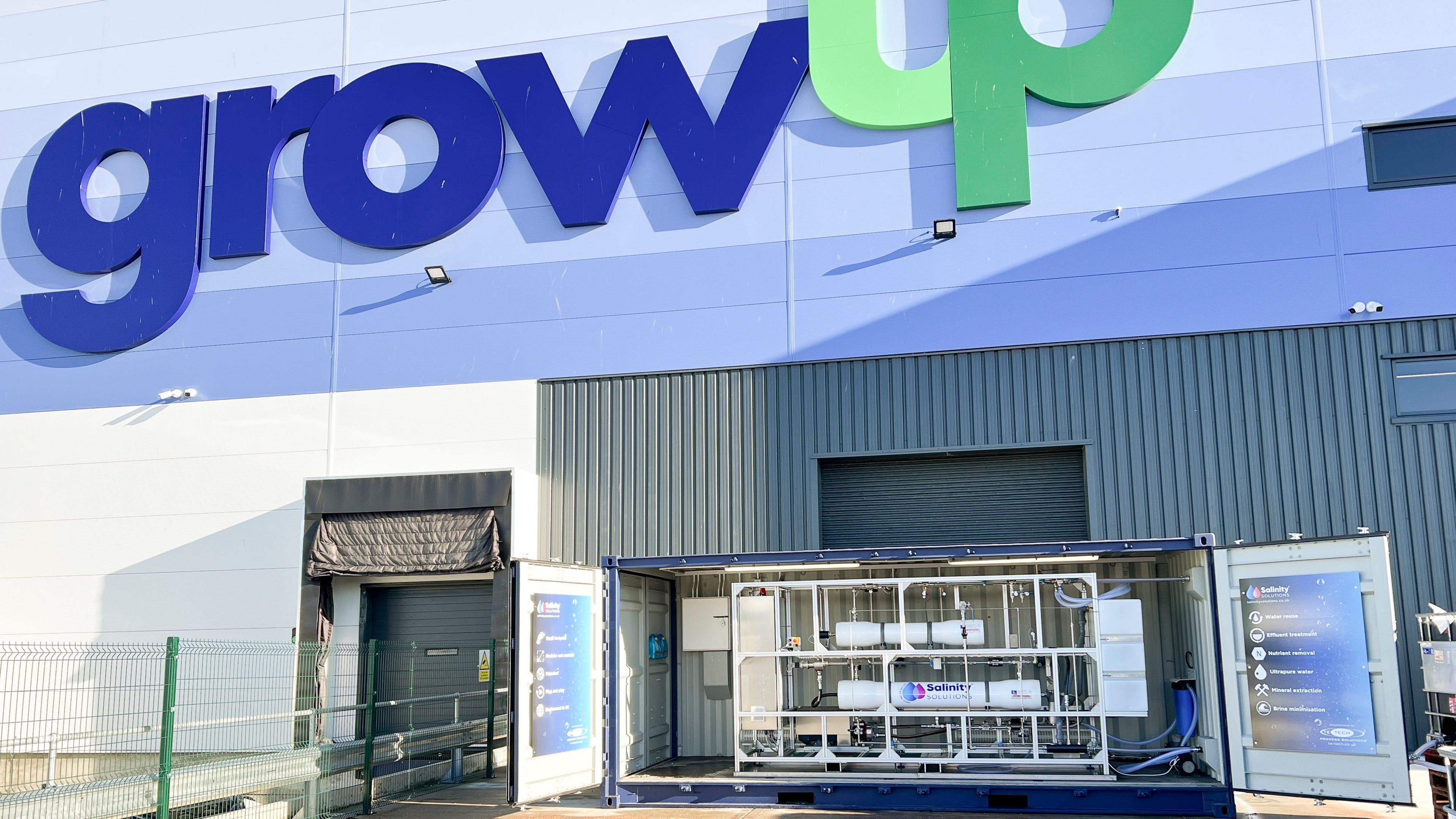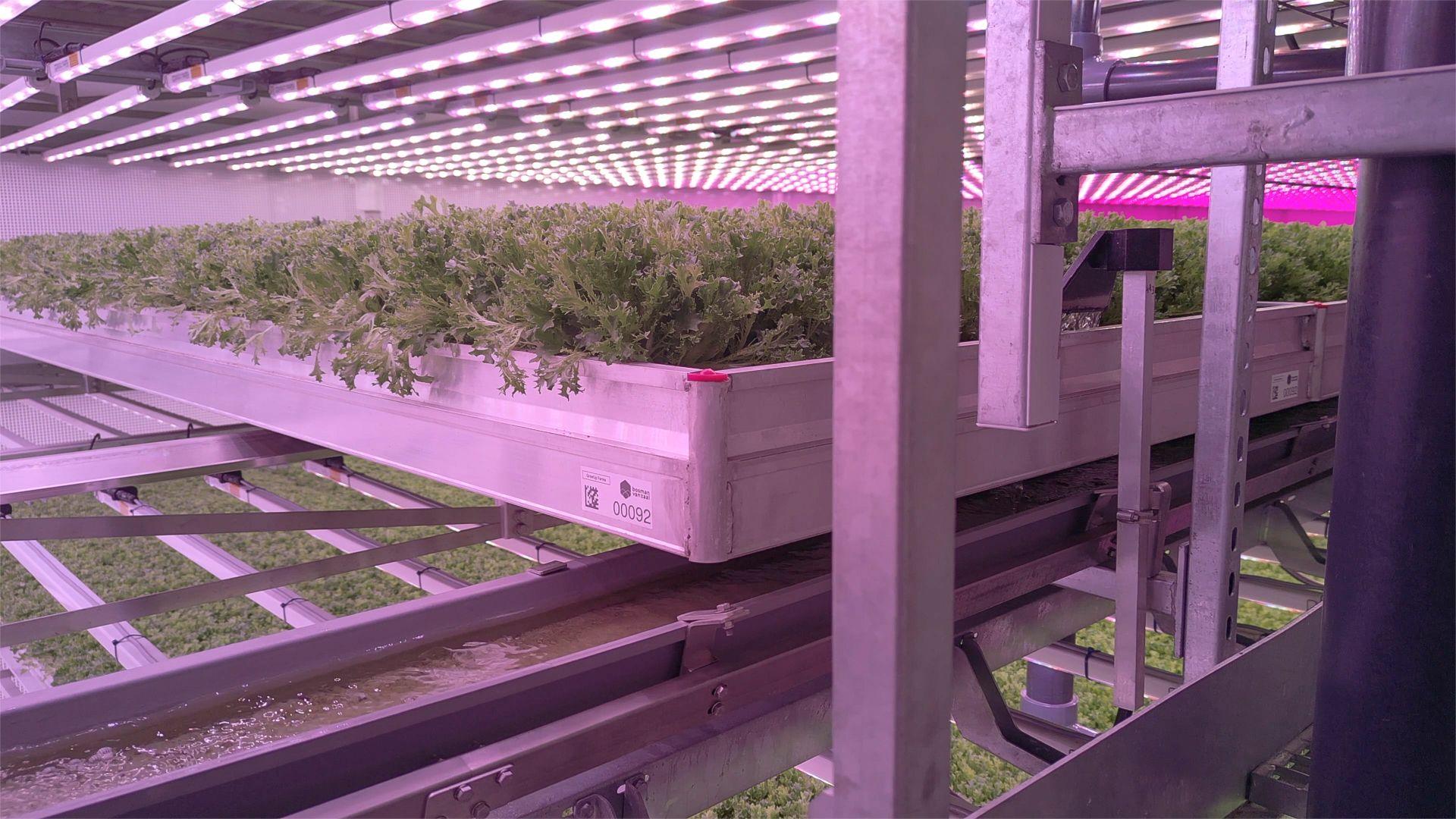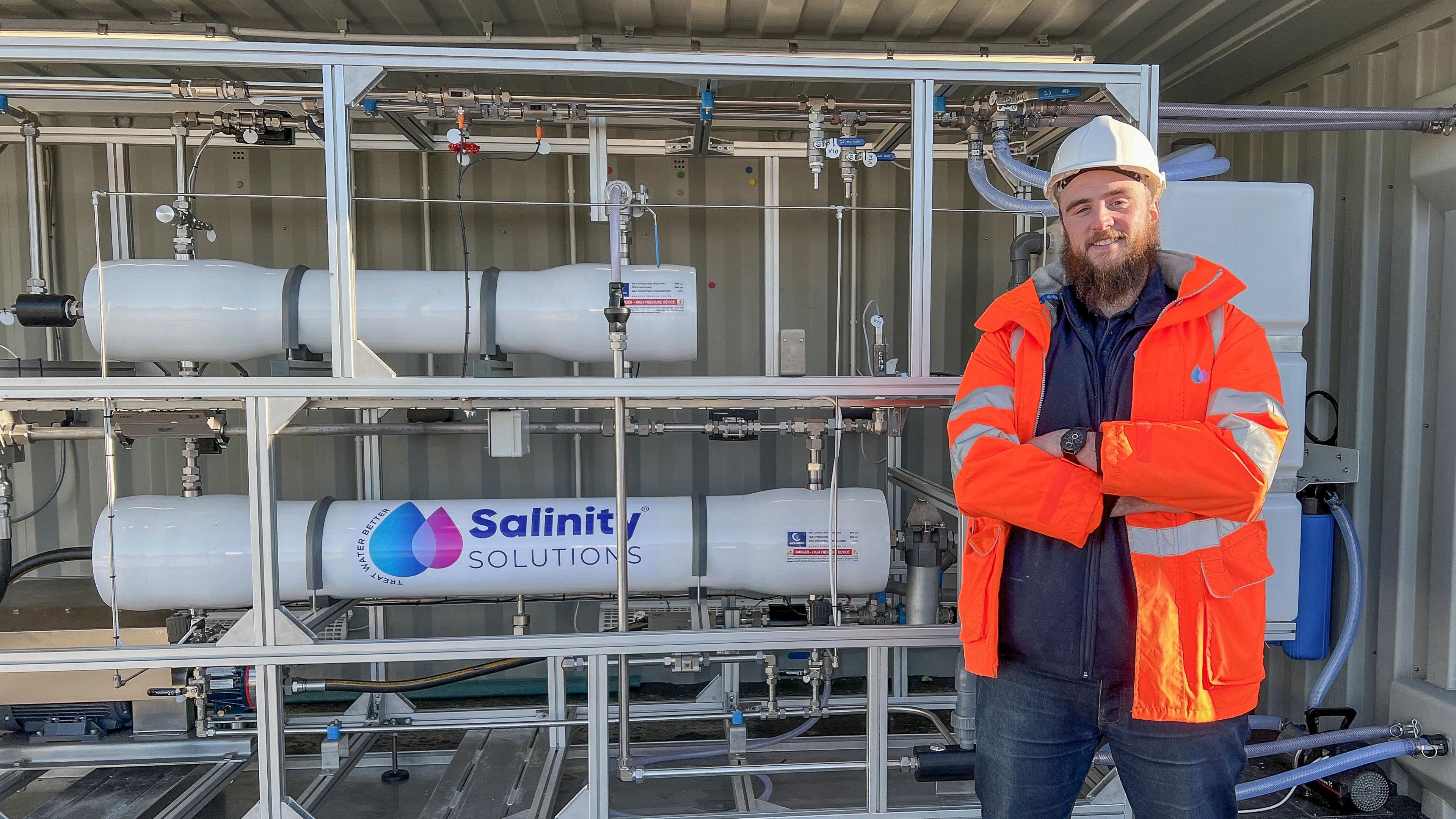Salad grower trials new water-saving technology

The water is re-circulated twice using a pressure system
- Published
New technology which its designers hope will have a major impact on reducing wastewater has been trialled at a vertical farm.
Water treatment expert Salinity Solutions teamed up with indoor salad producer GrowUp Farms in Sandwich, Kent, for the 10 -day trial.
Wastewater from the growing process, as well as elsewhere on the site, was collected and re-circulated twice, using a unique pressure system.
Liam Burlace, co-founder of Salinity Solutions, said: “This allows us to reach much higher recoveries making more fresh water accessible."

At GrowUp Farms, crops are grown in layers under special LED lights
The standard technology used in the industry is called reverse osmosis, in which water is purified by pumping it through a semi-permeable membrane.
Salinity Solutions has developed a way of re-circulating the water, to treat it twice in an energy-efficient way.
Mr Burlace said: “The aim here is to treat water better, so we want to extract as much fresh water as possible, whilst minimising the energy consumption of the system.”
The GrowUp Farms’ Pepperness site spans just five acres in Sandwich, but has the equivalent of 1,000 acres of growing space in a controlled environment, powered by renewable energy.
Salad crops for supermarkets are grown in fertilised water, rather than soil.
GrowUp Farms says the ground-breaking batch reverse osmosis technology - the first in the world to be manufactured commercially - could have a major impact on reducing wastewater, not only in the food sector but in many other sectors around the world, helping to solve the emerging global water crisis.
In the trial at the Sandwich site, rain water, water used for cleaning and “old” irrigation water were recycled.

Liam Burlace, who co-founded the company, said the aim was to "treat water better"
GrowUp Farms impact director, Gillon Dobie, said: "Globally, demand for water is set to double over the next five years.
"Water treatment consumes 4% of the world’s total electricity production and conventional reverse osmosis systems are traditionally energy intensive.
"Crucially, Salinity Solutions’ technology uses half the energy of existing systems while recovering up to 98% of clean water."
Much of what is left over from the process is concentrated fertiliser, which can also potentially be recycled.
'Fantastic innovations'
Senior lecturer in environment and sustainability at the University of Surrey, Dr Zoe M Harris, said: "Vertical farms are already fantastic innovations in that they already recycle their water. They are closed loops, recirculating systems. So we already have a saving there.
"By collaborating with Salinity Solutions, they are basically doubling up on their advantage.
"If they can further recover precious water and do that in a way that's economic and sustainable, it really will escalate and push forward vertical farming and controlled environment industries to be more sustainable.”
Salinity said the technology could also be used outside the food sector, for example at wastewater treatment plants, where nutrients such as phosphates and nitrates need to be removed.
The trial has now finished and the results will be analysed.
Related Internet links
Follow BBC South East on Facebook, external, on X, external, and on Instagram, external. Send your story ideas to southeasttoday@bbc.co.uk, external.